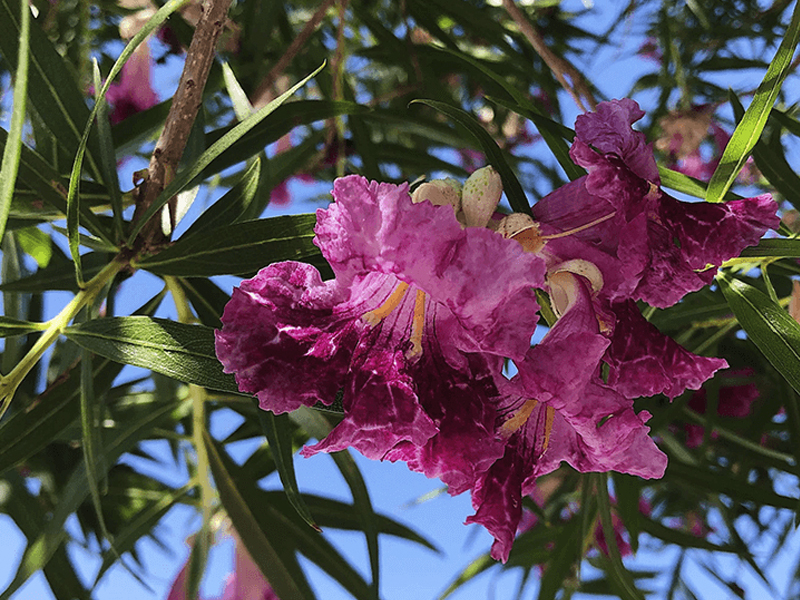
Join the June EcoQuest— Wild for Willow—and help find and map desert willow (Chilopsis linearis).
Have you seen trees with big, beautiful violet or light pink blooms ? It’s likely desert willow. This Arizona native plant thrives in the desert heat and continues to display its showy flowers through even the hottest days of summer.
Not actually a willow, but a member of the Bignonia family (Bignoniaceae), the same family as Jacaranda. This tree is a great resource for wildlife, providing food, cover and habitat, especially for birds and pollinators. People can also enjoy the cover and shade too. Desert willow is extremely drought and heat tolerant and practically pest and disease free. It also offers erosion control and acts as a windbreak.
Desert willow is also an ethnobotanically significant plant, meaning it historically and currently used by people in many ways, including food, fiber and medicine.
Finding and mapping desert willow can provide information about native plants in the metro Phoenix. Studying distribution contributes to learning about population size and density. It also offers understanding on where wildlife can find food and shelter in an urban setting.
This month’s EcoQuest is in partnership with the Arizona Native Plant Society. Learn more about and support the Arizona Native Plant Society (AZNPS).
EcoQuests are month long challenges that are part of the larger Metro Phoenix EcoFlora Project. You can learn more and join the Metro Phoenix EcoFlora.
**PLEASE observe COVID-19 guidelines/recommendations.**
This a great opportunity to get outdoors close to home, while navigating the complications of COVID-19. However, it is imperative that you follow the guidelines/recommendations of your local governments. Please practice social distancing, wear a mask and wash your hands.
Arizona Office of Tourism: Responsible Recreation in AZ
NO TRESPASSING
Do not remove or move natural materials (plants, animals, rocks)
Respect wildlife (do not touch, feed, or disturb animals)
Sources:
https://plants.usda.gov/plantguide/pdf/pg_chli2.pdf
http://swbiodiversity.org/seinet/taxa/index.php?taxon=2566
